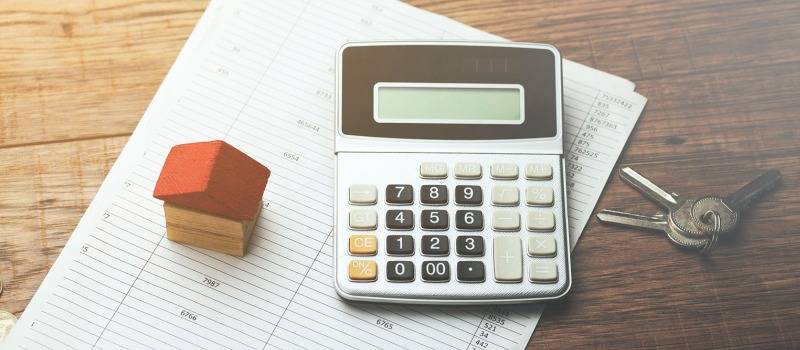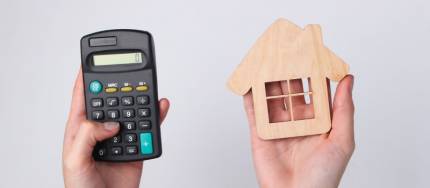Morgage Calculators: Everything You Need to Know
- 11 October 2022

Looking for a new home but don't want to break the bank? You can't say no to luxury at some point, can you? While it's great to have a rich credit history, it can be difficult to find the right mortgage for your needs. That's where mortgage calculators come in. These tools allow you to quickly and easily find out what type of mortgage you should be looking for, given your budget and other personal circumstances.
Let's explore how to find the right mortgage for your needs. Before you begin, make sure you're armed with all the relevant information. This includes your income, expenses, and what type of financial institution you plan to work with.
Personal Circumstances
The first step in the mortgage process is to calculate your net worth. This is a simple subtraction of your total liabilities from your total assets. Essentially, your net worth measures your financial stability.
You'll need to decide how much you're willing to spend on a mortgage. This is called your loan budget. Your loan budget is the total amount of money you're willing to spend on your mortgage over a specific period of time. When choosing your loan budget, consider how long you'll need the money, whether you want a variable or fixed rate mortgage, and what type of payments you can handle.
Once you've determined your net worth and loan budget, you can start to choose the right mortgage for your needs. The rest of this article will discuss how to do this...
Income
Your income is how much money you make before taxes and other deductions. If you're self-employed, you'll need to consider how much you actually bring in versus how much you spend on business-related expenses. This is a common financial mistake that people make. They focus on how much they spend instead of how much they bring in. Consider both your personal and business income when choosing a mortgage.
Expenses
Your expenses are the costs you incur in day-to-day living that aren't directly related to your income. These are the costs you need to consider when choosing a mortgage. They're often confused with your fixed costs, but they're not necessarily the same. Your fixed costs are the costs that remain the same regardless of your income. Think of your fixed costs as your home's mortgage, insurance, and maintenance costs. Your expenses are all the costs beyond your fixed costs. Your expenses can vary depending on various factors, but they're always there. Consider your expenses before making a decision.
Debt
Your debt is the money you owe. This could be credit cards, student loans, or any other sort of loan. It's essential to look at your total debt before making a decision about your creditworthiness. The amount of money you owe determines your financial stability. When choosing a mortgage, make sure you are aware of your total debt and the interest rate you're being charged. Consider all your debts when choosing a home loan.
Your credit rating is also a factor in mortgage approval. The better your credit rating, the more likely your lender will approve you for a loan. Your credit report will give you a detailed look at your credit history. This includes your payment history as well as the amount you're obligated to pay back. The higher your credit rating, the less you'll have to pay back. There are three types of credit: good, bad, and mixed credit. You'll need to establish a credit line with a lender if you have poor credit. This is a requirement if you want to borrow money to buy a home. It's also a good idea to establish credit if you want to buy any type of merchandise on credit. The better your credit rating, the more you'll be able to accomplish. With a little bit of effort, you can establish good credit and be on your way to buying a home or other large purchases.
Types Of Mortgages
There are two types of mortgages: fixed and variable. A fixed rate mortgage doesn't change over the life of the loan. This is typically the case for mortgages where the interest rate is fixed for a period of time. A variable rate mortgage will change based on the performance of a set of interest rates or the Treasury bill rate. These are often referred to as "market-based" rates.
The advantage of a fixed rate mortgage is that it doesn't vary based on inflation or market trends. The disadvantage is that they don't adjust for changes in the financial markets. If you decide to take out a variable rate mortgage, make sure you understand how this affects your overall payments. This article on the best fixed rate mortgage doesn't float around like a balloon, but instead, stays put.
Consider All Factors
When choosing a mortgage, it's important to consider all the factors. It's not just about your income and expenses; it's about your overall financial situation. Take your time and do your research. Don't just look at the first loan offer you see; instead, look at what type of mortgage will suit your needs best. Also, make sure you read reviews and discuss loans with experts. This way, you'll be sure to choose a mortgage that suits your needs. Remember: luxury at some point is unavoidable; it's what makes us human. But it can also derail your finances if you don't do your research first. Before you say yes, make sure you understand what you're getting into. It's not like shopping for a pair of shoes where you walk out the door with a perfectly matched pair. There's plenty of research that goes into choosing a mortgage, and it's worth the time.

-iekbz-rs-wX-430.jpg)


